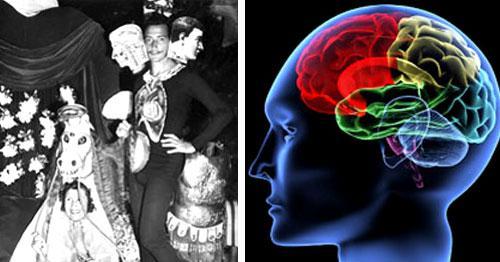Advertisement
The Science and Function of Dreams
A look into our dreams—from sweet to nightmare. What they do for us and how much control we have over them.

We close our eyes at night and dream. Sometimes beautifully, sometimes fitfully, sometimes frighteningly. But why?
The ancients looked for omens. Sigmund Freud saw clues from our past. Some researchers now say dreams help us brace for the future. Ben Franklin advised a light supper, clean sheets, fresh air, and as little dreaming as possible — to avoid painful dreams.
And what about nightmares? Can we, should we, rewrite them? We spend a lot of our lives dreaming. What’s it all about?
-Tom Ashbrook
Guests:
William "Bill" Domhoff, professor of psychology and specialist in dream research at the University of California Santa Cruz. He's author of "The Scientific Study of Dreams."
Ross Levin, a psychologist and sleep researcher in private practice in Manhattan.
Rodger Kamenetz, author and dream therapist who was trained at North of Eden. His books include "The History of Last Night's Dream." He is a retired professor of English, philosophy, and religion at Louisiana State University.
This program aired on August 17, 2010.